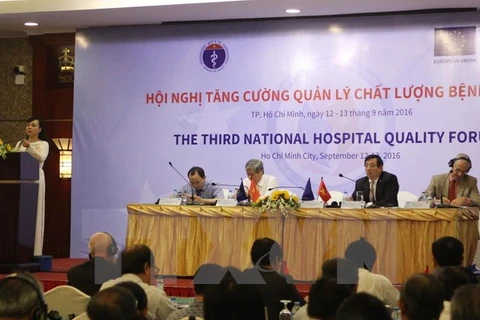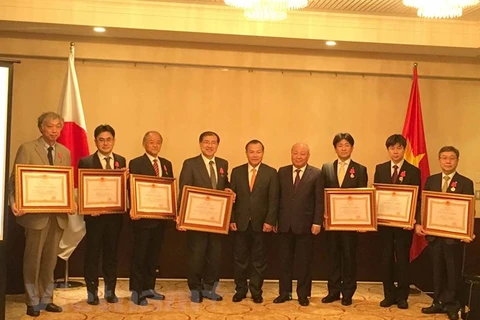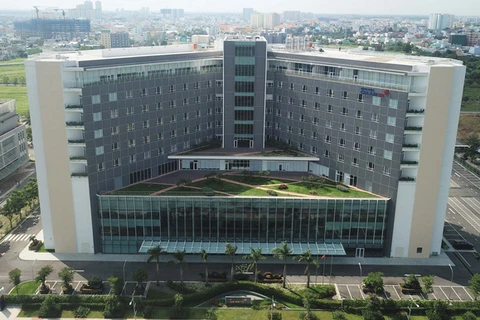HCM City (VNS/VNA) - Medical universities in the country need to introduce courses in hospital administration, experts have said.
Speaking at a conference held at the University of Medicine and Pharmacy in Ho Chi Minh City, they said the national medical system has been reformed, with many hospitals getting financial autonomy, and hospital administration is a very important facet in this reform.
Assoc Prof Dr Tang Chi Thuong, Deputy Director of the HCM City Department of Health, said many hospital managers in the city want to learn administration since they did not have the opportunity to learn in the past.
He said a good hospital chief needs leadership, planning and operational skills, financial management capabilities, and how to ensure quality and patients’ safety.
Prof Dr Nguyen Van Tap, head of the University of Medicine and Pharmacy’s quality assurance division, said hospital management plays an important role in ensuring healthcare services reach “80-85 percent of quality.”
In a market-driven system, quality is a decisive factor in the survival and development of hospitals, he said, adding that quality management helps meet patients and medical staff’s demands.
Vu Huu Duc of the HCM City Open University said public hospitals now have greater financial autonomy and so need to know about finance, including how to manage cash flows, financial leverage and others. They also need the skills required to manage human resources, he said.
Many public hospitals are currently facing a shortage of human resources, and so it is important for them to have proper policies to attract talent, which is a difficult task, he said.
Moreover, many are overcrowded, leading to working pressure for their medical staff and unhappiness among patients.
They also have to deal with government authorities and co-ordinate with the Vietnam Social Security to get medical insurance claims, he said.
They need to have strategies to adopt IT and advanced technologies to develop and attract patients, Duc added.-VNS/VNA
Speaking at a conference held at the University of Medicine and Pharmacy in Ho Chi Minh City, they said the national medical system has been reformed, with many hospitals getting financial autonomy, and hospital administration is a very important facet in this reform.
Assoc Prof Dr Tang Chi Thuong, Deputy Director of the HCM City Department of Health, said many hospital managers in the city want to learn administration since they did not have the opportunity to learn in the past.
He said a good hospital chief needs leadership, planning and operational skills, financial management capabilities, and how to ensure quality and patients’ safety.
Prof Dr Nguyen Van Tap, head of the University of Medicine and Pharmacy’s quality assurance division, said hospital management plays an important role in ensuring healthcare services reach “80-85 percent of quality.”
In a market-driven system, quality is a decisive factor in the survival and development of hospitals, he said, adding that quality management helps meet patients and medical staff’s demands.
Vu Huu Duc of the HCM City Open University said public hospitals now have greater financial autonomy and so need to know about finance, including how to manage cash flows, financial leverage and others. They also need the skills required to manage human resources, he said.
Many public hospitals are currently facing a shortage of human resources, and so it is important for them to have proper policies to attract talent, which is a difficult task, he said.
Moreover, many are overcrowded, leading to working pressure for their medical staff and unhappiness among patients.
They also have to deal with government authorities and co-ordinate with the Vietnam Social Security to get medical insurance claims, he said.
They need to have strategies to adopt IT and advanced technologies to develop and attract patients, Duc added.-VNS/VNA
VNA
























